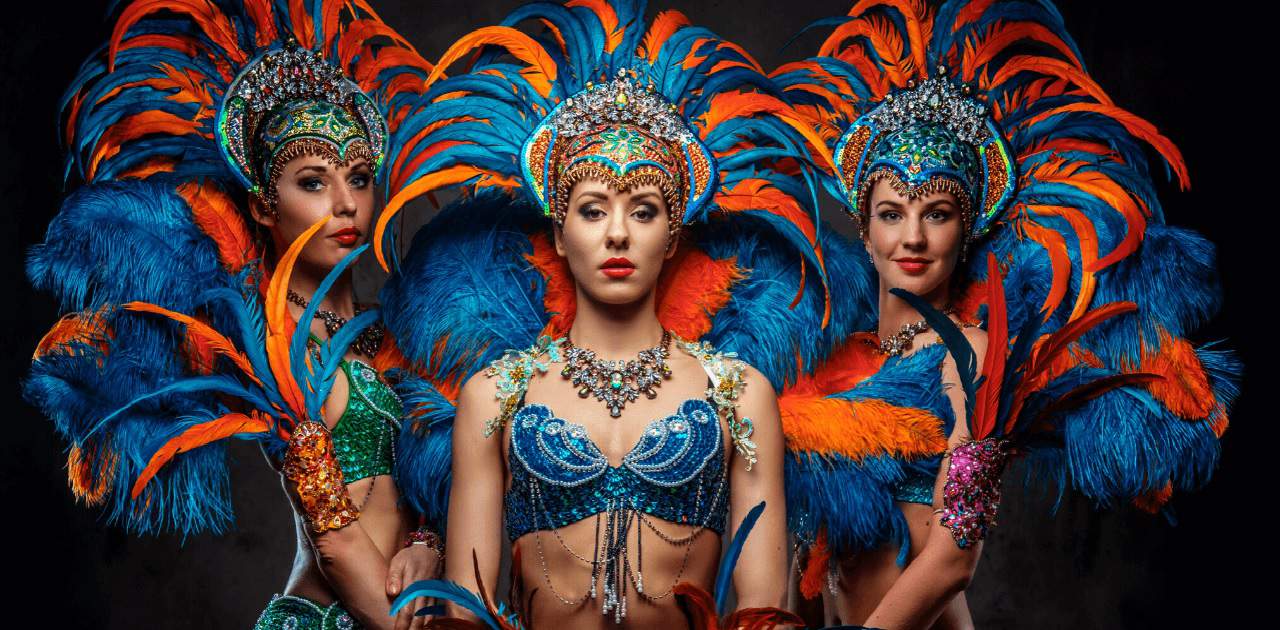Introduction
Festivals play a key role in human culture, celebrating traditions, rituals, and community connections. They bring together people from different backgrounds, creating unity. Festivals are not just about entertainment or religion they also promote cultural diversity. In this article, we will explore how festivals support cultural diversity, why they are important for communities, and the wider effects they have on society.
What Are Festivals?
Festivals are events celebrated by communities to mark significant occasions or honor traditions. These gatherings often include music, dance, art, food, and rituals that represent a specific culture or religion. While some festivals are regional or community-based, others attract international participation, highlighting the interconnectedness of cultures worldwide.
The Rise of Festivals in Enhancing Cultural Diversity
Festivals have become more important over the years. They are now key events in cities and communities around the world. These celebrations bring together people from different cultures, allowing them to share traditions, music, food, and art. As the world becomes more connected, festivals play a bigger role in showing cultural diversity and promoting understanding between different groups.
Understanding Cultural Diversity

Cultural diversity means having different cultural or ethnic groups in a society. It includes various traditions, languages, customs, and arts that make each group special. As the world becomes more connected, it’s important to understand and value cultural diversity. Festivals offer a chance to showcase these diverse cultures, letting people experience new viewpoints and learn from one another.
The Role of Festivals in Bridging Cultures
Festivals as Cultural Celebrations
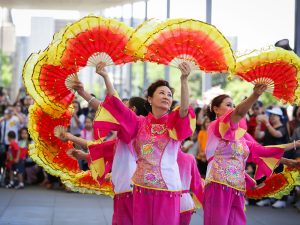
Festivals are special celebrations with cultural, religious, or historical meaning. They let people show their identity and heritage through food, music, dance, and rituals.
For example, Diwali in India celebrates light and victory, while Chinese New Year marks the beginning of a new lunar year. These festivals are important to those who celebrate them, and they also offer a chance for others to learn about different traditions.
Economic Benefits of Festivals
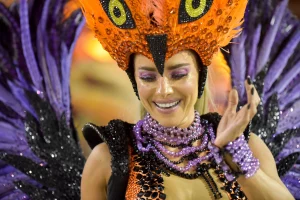
Festivals also play a big role in the economy, especially in places with diverse communities. Cultural festivals attract tourists, helping local businesses grow.
Events like Rio de Janeiro’s Carnival or the Edinburgh Festival Fringe bring in visitors, create jobs, and give local artists a chance to share their work. This economic benefit highlights why supporting festivals is important for promoting cultural diversity.
Bridging Gaps Between Cultures
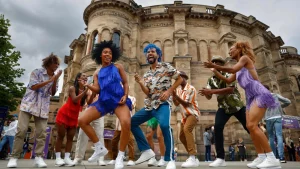
Festivals play a key role in bringing different cultures together. They give people from diverse backgrounds a chance to share their customs and practices.
For example, multicultural festivals in cities like Toronto or London feature music, food, and traditions from many cultures. These events promote conversation, understanding, and respect, helping to break stereotypes and encourage acceptance of different ways of life.
Promoting Inclusivity
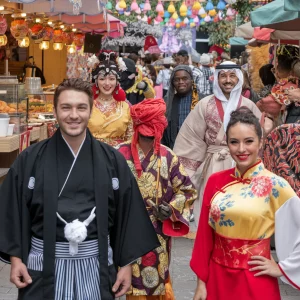
Festivals promote inclusivity by creating spaces where everyone can join in, no matter their race, ethnicity, or background. These events invite all people to enjoy and take part in the celebration.
This helps reduce social divides and encourages people to recognize shared human experiences. By being inclusive, festivals ensure that cultural diversity is celebrated, contributing to a more united and peaceful society.
Festivals as a Way to Learn About Other Cultures
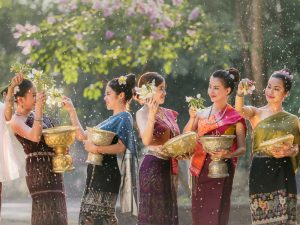
Festivals are important because they help people learn about different cultures. At these events, people can try new foods, hear music, and see dances they might not experience in daily life. This learning helps challenge stereotypes and encourages appreciation for other cultures.
By joining in festivals, people gain a deeper understanding of the customs and beliefs that shape different communities, leading to more respect and understanding.
Festivals Help Build Stronger Communities
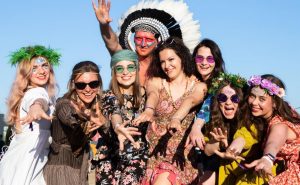
Cultural Expression Through Festivals
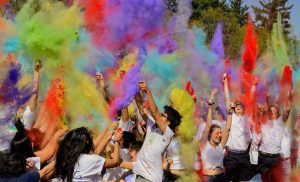
The Economic Impact of Festivals

Festivals bring economic benefits to the communities that host them. Attendees often spend money on food, souvenirs, and local businesses, which creates jobs and supports the economy. Festivals also attract tourists, further boosting the local economy. Many cities depend on festivals to draw visitors and promote local culture, making them an important economic and cultural resource.
Festivals Encourage Tolerance and Acceptance
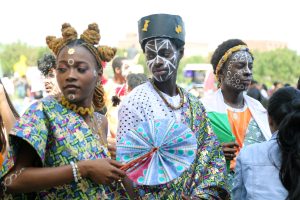
Festivals bring different cultures together, promoting tolerance and acceptance. By sharing experiences, people can better understand and appreciate each other’s differences. Festivals create a safe space to enjoy cultural diversity without judgment.
As people celebrate together, they learn to value each culture, becoming more open-minded and accepting. This helps reduce prejudice and build peaceful communities.
Global Impact of Festivals

The Role of Festivals in Promoting Peace
Festivals promote peace by bringing people from different backgrounds together. They help break down divisions and encourage understanding. By focusing on shared joys like music, food, and celebration, festivals build positive relationships and reduce tensions. In a divided world, festivals offer a chance to unite people through cultural exchange and mutual respect.
Challenges in Celebrating Cultural Diversity Through Festivals

While festivals celebrate cultural diversity, there are challenges to address. One issue is the commercialization of festivals, which can sometimes overshadow their cultural meaning. As festivals become more commercial, authentic traditions and rituals may be replaced by entertainment and profit.
Another challenge is that some festivals may be exclusionary, not representing all cultural groups in a diverse community. It is important for organizers to keep festivals inclusive and true to their cultural roots while welcoming a wide range of audiences.
The Future of Festivals in Promoting Cultural Diversity
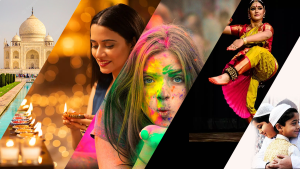
The future of festivals looks bright, especially for promoting cultural diversity. As technology improves, festivals will be able to reach even more people through virtual platforms, letting people from all over the world join in. The focus on inclusivity and cultural exchange will likely grow, with more festivals celebrating different traditions. Festivals will continue to evolve, and their role in bringing people together and promoting understanding will become even more important in our connected world.
Analysis Table: The Role of Festivals in Enhancing Cultural Diversity
| Aspect | Impact on Cultural Diversity |
|---|---|
| Cultural Exposure | Festivals offer a platform for people to learn about different traditions, cuisines, and art forms. |
| Community Building | They encourage interaction between different cultural groups, fostering understanding and unity. |
| Inclusion | Festivals are inclusive, inviting people from all walks of life to participate and celebrate together. |
| Global Awareness | International festivals spread cultural understanding on a global scale, promoting respect for diverse traditions. |
| Economic Growth | Festivals boost the local economy by attracting tourists and providing business opportunities. |
Comparative Table: Traditional Festivals vs. Modern Festivals in Enhancing Cultural Diversity
| Category | Traditional Festivals | Modern Festivals |
|---|---|---|
| Focus | Celebrates specific cultural or religious traditions. | Focuses on multiculturalism, blending different cultures and traditions. |
| Audience | Primarily attracts local communities. | Attracts a global audience, including tourists and diverse ethnic groups. |
| Impact on Local Economy | Limited economic impact, often confined to the local area. | Significant economic impact, particularly in tourism and local businesses. |
| Cultural Preservation | Strong emphasis on preserving ancient traditions. | Often mixes traditional and contemporary elements, sometimes diluting cultural authenticity. |
| Technological Integration | Limited use of technology; mainly in physical spaces. | Heavy use of technology, including live streaming, VR, and social media. |
Conclusion
Festivals are key in promoting cultural diversity by offering a space for people to learn about and enjoy the customs of others. They bring unity, inclusivity, and respect, while also boosting the economy and offering educational benefits. As the world becomes more connected, festivals remain one of the best ways to bridge cultural gaps, helping to create a world that celebrates diversity instead of dividing it.
By addressing challenges like commercialization and ensuring inclusivity, festivals can continue to be important tools for cultural exchange and unity. The impact of festivals on cultural diversity is significant and will grow as our world becomes even more globalized.

